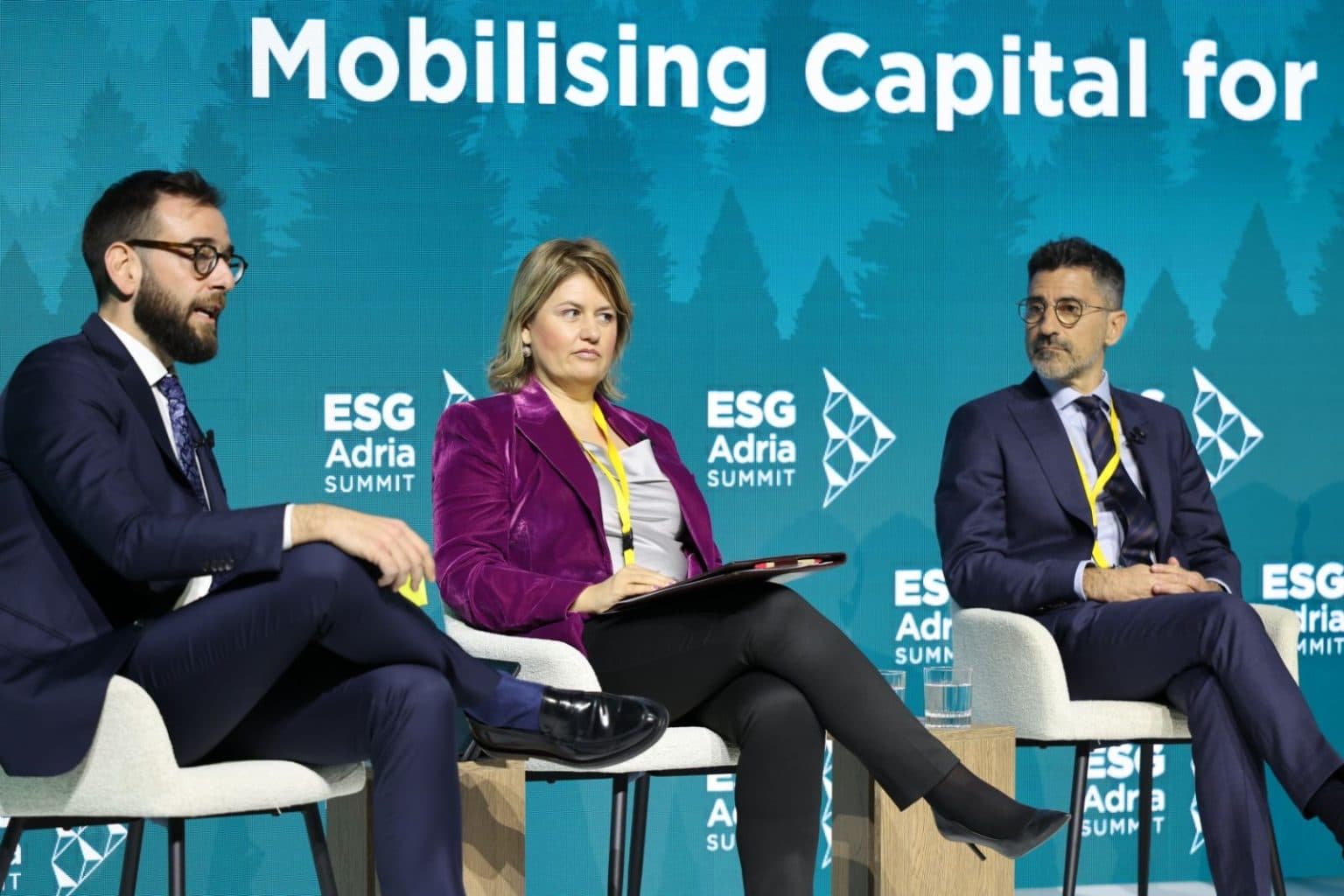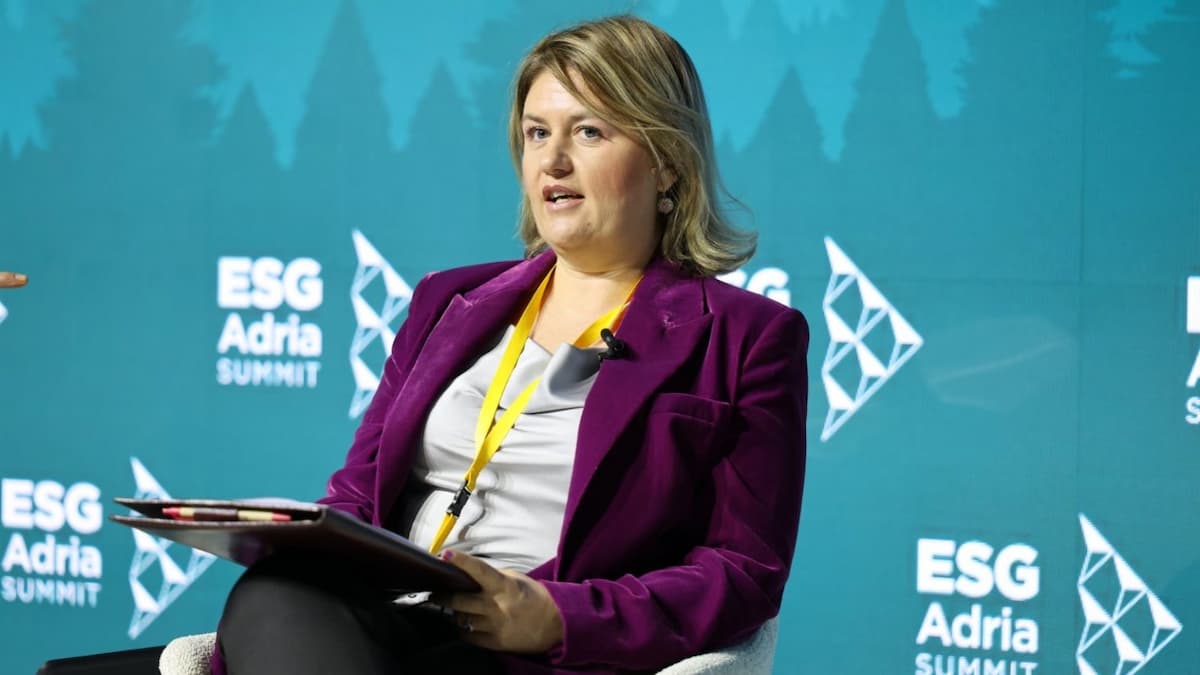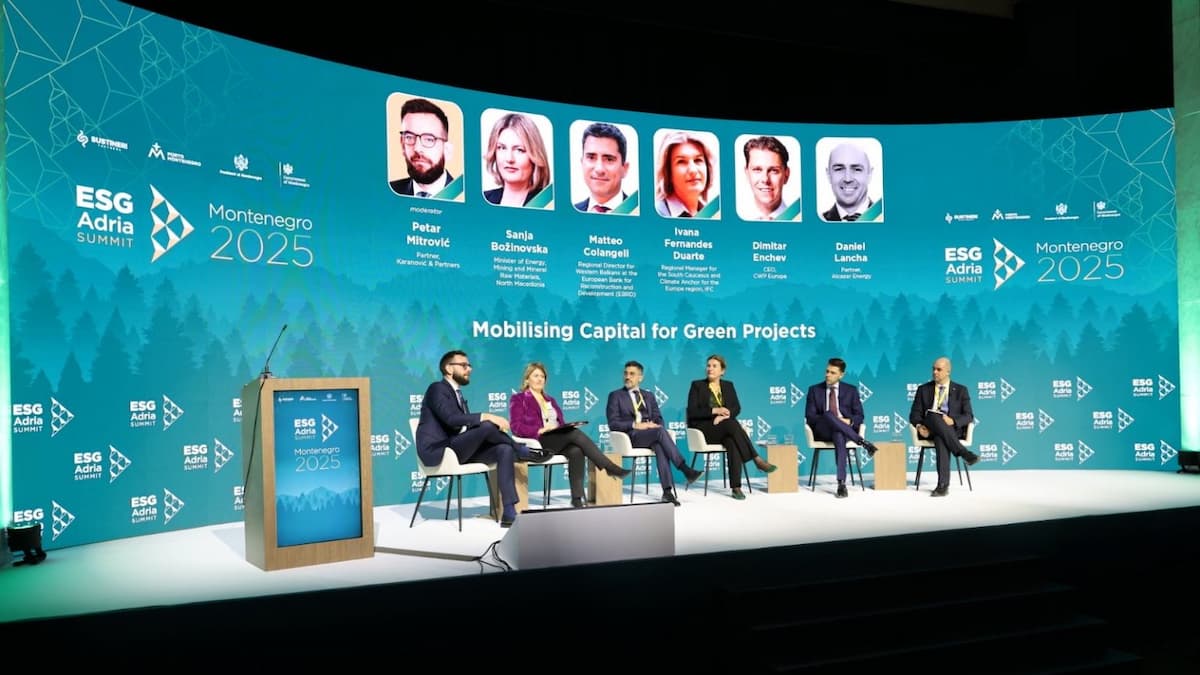At the prestigious ESG Adria Summit 2025 in Tivat, the Minister of Energy, Mining, and Mineral Resources, Sanja Bozhinovska, actively participated in discussions on sustainable development and the green transition. The event, held under the patronage of the President of Montenegro, Jakov Milatović, and Prime Minister Milojko Spajić, brought together over 700 leading experts, entrepreneurs, and policymakers from the region, confirming its position as the leading regional platform for dialogue on sustainability. This year’s summit focused especially on practical solutions to accelerate the green transition, emphasizing innovative financial models and public-private partnerships.
During the panel “Mobilizing Capital for Green Projects,” Minister Bozhinovska presented in detail North Macedonia’s efforts in the green transition process.
“From day one of our government, the focus has been on developing energy infrastructure that ensures long-term stability, sustainability, and economic progress. Our strategy is based on parallel development of state energy infrastructure and encouraging private investments in renewable energy. With the support of the EBRD, we are actively working on introducing innovative financial mechanisms such as Contracts-for-Difference to reduce investor risk. The green transition must be just. That’s why we remain strategically committed to modernizing REK Bitola, while simultaneously building solar and wind power plants to reach a 38% share of renewables by 2030. Regional cooperation is key. Building new interconnections with Albania, Greece, and other neighbors will strengthen the region and open doors for greater investment,” Bozhinovska emphasized.
The Minister specifically highlighted key projects such as the modernization of REK Bitola, construction of new solar and wind plants, and the development of cogeneration facilities as a transitional solution.
Highlighting the importance of regional cooperation, the Minister stressed that North Macedonia is actively working on building new interconnections with neighboring countries. “This will provide greater energy system stability and open new opportunities for clean energy trade,” she explained.
In addition to Minister Bozhinovska, the panel included senior representatives from the EBRD, the International Finance Corporation, and leading companies in the renewable energy sector. The discussions emphasized the need for clearer regulations, greater transparency, and stronger regional coordination for the successful implementation of green projects.
This event confirmed that the Western Balkans is a key player in Europe’s green transition, but that achieving ambitious climate goals will require continuous investment and political commitment.
Respectfully,
Ministry of Energy, Mining and Mineral Resources




